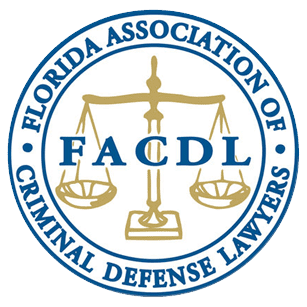If you have been accused of underage possession of alcohol, you are likely worried about the consequences that could follow a conviction. In Florida, this crime is taken very seriously, with penalties including fines, jail time, and a permanent criminal record. With considerable experience as both a prosecutor and a defender, Sarasota underage crimes lawyer Erika Valcarcel can anticipate the prosecution’s approach and she will work diligently to get your charges reduced or eliminated in court, whether it involves pointing out police misconduct or conducting an independent investigation.
Call (941) 363-7900 today to see how your freedom can be protected.
Florida Underage Possession of Alcohol Laws
According to Section 562.111 of Florida Statutes, underage possession of alcohol is defined as an individual under the age of 21 possessing or drinking an alcoholic beverage. This includes beer, wine, liquor, mixed drinks, or any beverage containing alcohol, regardless of the amount. The law applies whether the alcohol is opened or sealed, and whether the person was actively drinking or simply in possession of it. Even standing near alcohol in certain situations can lead to charges if prosecutors believe you had the ability and intent to control it. Controlling it means you have the ability to access it, are able to decide what happens to it, and you are aware of it’s presence.
Actual vs. Constructive Possession of Alcohol in Florida
When prosecutors are charging an individual with underage alcohol possession, they must prove that you either actually or constructively possessed the alcohol. These terms describe how and where the beverage was found in relation to you.
Actual Possession of Alcohol
Actual possession is when the alcohol was physically on you or within immediate reach. Examples include:
-
Holding a beer, cup, or bottle.
-
Having a flask or can in your pocket or bag.
-
Carrying an open container while walking down the street.
If officers can see or directly recover the alcohol from your person, they’ll often allege actual possession.
Constructive Possession of Alcohol
Constructive possession is when alcohol isn’t in your hand but is somewhere you could access it. Situations might include:
-
Alcohol in the backseat of a car you’re riding in.
-
A bottle on a table next to you at a house party.
-
Drinks in a shared cooler at the beach.
In these cases, the State must prove both that you knew the alcohol was present and that you had the ability to control it.
Actual possession cases are typically easier for the prosecution to prove. Constructive possession cases often leave more room for defense arguments, especially if others had equal access to the alcohol or if there’s no clear evidence you were aware of the alcohol being there.

Charged with a crime?
Contact us today. Erika Valcarcel Can Help.
Penalties and Consequences of Underage Alcohol Possession
Underage possession of alcohol is typically filed as a second-degree misdemeanor. For a second or third offense, however, the crime can be elevated to a misdemeanor in the first degree. In addition to fines and time served in jail, someone convicted of this crime will automatically lose their license for 6 to 12 months, depending on the severity of the offense. Common penalties include, but are not limited to:
- Underage Possession of Alcohol (2nd Degree Misdemeanor): A fine of up to $500 and up to 60 days in jail or up to six months of probation
- Underage Possession of Alcohol (1st Degree Misdemeanor): A fine of up to $1,000 and up to 1 year in jail or up to 12 months of probation
Enrollment in alcohol education programs is another penalty often given in these cases. Failure to comply with attendance can lead to further penalties. You maybe eligible to attend a diversion program in order to avoid a criminal record of charges with the help of an experienced defense attorney.
While these penalties may not seem severe, the collateral consequences of a conviction can wreak havoc. For college students, a criminal record could mean losing out on higher education. Many colleges and universities are made aware of students’ criminal activity through police reports and other sources. A conviction could lead to suspension or expulsion. In addition, scholarships may be difficult to find, as many are off-limits to those with a criminal history.
Defending Against Underage Possession of Alcohol
There are a number of defenses that a skilled defense attorney can use to get your charges thrown out in court. One of the most effective strategies is claiming that the alcohol in question is not yours. Perhaps you were with a friend who was drinking, or maybe alcohol was found in a house you were visiting. There are many circumstances that could lead to a false accusation. It might also be the case that you had no idea you were drinking an alcoholic beverage. In Florida, pleading ignorance is a defense to underage possession of alcohol.
Contact Erika Valcarcel, Criminal Defense Lawyer, P.A. Today
Sarasota underage crimes lawyer Erika Valcarcel understands the turmoil that can arise from these difficult accusations. She believes the key to winning your case lies in getting to know you. Once your side of the story has been told, your case can be presented in the best possible light.
Call our Sarasota criminal defense firm today at (941) 363-7900 now to see how you can defend your rights and keep your record clean.


